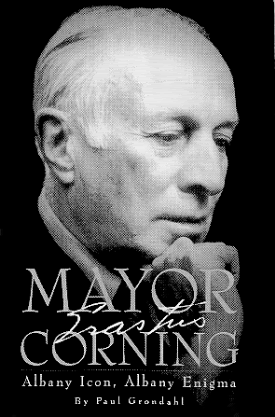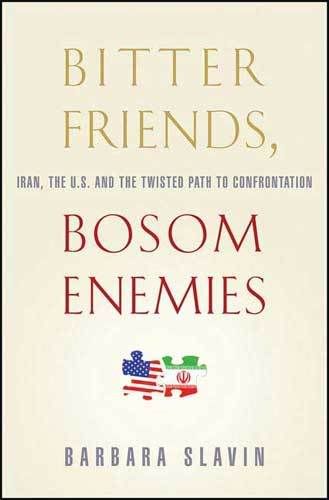
Our current world of globalization, technological advancement and the widening schism between rich and poor stems from the Industrial Revolution. Indeed, the Industrial Revolution is arguably the most important historical watershed in human history. So why did it happen in eighteenth-century England? Furthermore, how come the unprecedented economic growth it produced only served to make parts of the world even poorer?
Conventional wisdom is that the Industrial Revolution resulted from the development of stable, political, legal and economic institutions in seventeenth-century Europe. Many assume factors such as geography, natural resources or exploitation were behind the Industrial Revolution. A decade ago,
Jared Diamond postulated in his best selling and Pulitzer prize winning book,
Guns, Germs, and Steel: The Fates of Human Societies, that natural endowments such as geography were largely responsible for differences in the wealth of nations.
Gregory Clark, a professor of economics at the University of California, Davis as well as department Chair, is posing a direct challenge to Diamond and our longstanding belief of why the Industrial Revolution happened. In his recently published book,
A Farewell To Alms: A Brief Economic History of the World (
Princeton University Press), Clark contends that culture not imperialism or geography explains the wealth and poverty of nations.
His provocative book has garnered much attention and provoked considerable debate. Tyler Cowen of the
New York Times wrote late last year that,
“Professor Clark’s idea-rich book may just prove to be the next blockbuster in economics. He offers us a daring story of the economic foundations of good institutions and the climb out of recurring poverty. We may not have cracked the mystery of human progress, but ‘A Farewell to Alms' brings us closer than before."
Still others take issue with Clark’s suggestion that culture is far more influential than institutions in generating economic growth. In a
New York Times review in August, Robert P. Brenner, a historian at the University of California, Los Angeles is quoted as referring to Clark’s idea of genes for capitalist behavior as a
“speculative leap.” Prior to even reading Clark’s book, conservative Andrew Sullivan wrote the following for his
blog in August,
“Conservatism has long posited that human nature has no history. But what if it does? What if genetic adaptation occurs more swiftly among humans than we once believed? This implies that human nature is actually more plastic than we have long thought - but generationally, not individually. It suggests that different populations may have not just different cultural but different genetic inclinations. It means that some populations may therefore have different skill-sets than others, and even different aptitudes with respect to complex systems like, liberal democracy, that require specific habits of mind and custom. It means that these facts about human societies across the globe may be somewhat stubborn things in the short term, if not in the long.
If these ideas undermine parts of conservatism (its belief in unchanging human nature in history), they also entrench others (that societies cannot be abstracted from their moment in time or culture). These ideas also suggest, of course, that a place like, say, Iraq, will not soon muster anything like the skills and practices for a Western European democracy. These are my wild-eyed inferences from a book I have not yet read.“
Yet Clark’s book is also a difficult pill to swallow for liberals idealists like me who believe in activism to promote peace, justice and prosperity on a global scale. Personally, I believe factors beyond culture such as natural resources, geography and hostile neighbors are largely responsible for defining cultures. Hence, I further believe that activism is required to help influence those factors that shape cultures and hopefully facilitate worldwide prosperity and social justice.
Putting my own misgivings about some of his conclusions aside, Clark’s book is compelling, scrupulously sourced and contains an abundance of remarkable facts. Clark graciously agreed to a telephone interview with me about his book. Below is a transcript of our conversation.
******************************************************************************ILJ: Professor before we delve into the substance of your book let’s talk about why you embarked on this project in the first place. Why is it so important to establish why the Industrial Revolution happened?Clark: Well, the industrial revolution is actually one of those amazing puzzles of world history. And it’s something that’s up there with things like String Theory in physics and quasars in astronomy. It’s how we got here. It’s how we have the modern world. And the puzzle is why did it occur only 200 years ago when people were around for at least a hundred thousand years before that? One of the reasons it was fun to write this book is that you could actually explain this puzzle in terms that any intelligent person can understand and let them see why it is such an amazing puzzle about why history would take that particular form. Whereas with things like quantum mechanics I certainly know I’m never going to understand that stuff (laughs)!
ILJ: I’m curious as to how you compiled the impressive historical data you utilized. Whether one agrees with your arguments or not, and I’m skeptical about some of your conclusions, the information you accumulated whether it’s last wills and testaments from men in the 1600s or pre-industrial fertility rates is quite astounding. I found myself transfixed by all the data presented in your charts and graphs. How did you obtain access to this data as well as economic surveys from hundreds of years ago?Clark: Well, I’m a specialist in English economic history. And that’s actually one of the countries that is the best documented, going way back to the middle ages. I’ve been working on this book for twelve years. I’ve been in this field for twenty-five years. And then the other thing is I actually love to read anthropology and that provided this whole other source of data. And then I’ve been teaching for the last fifteen years effectively world history courses. So the great thing is you gradually get exposed to more and more evidence and more and more materials. And what’s nice about this particular history is this is a very obscure corner of the academic realm.
People are just not aware of how useful and interesting various bits of information we have from the past are. How we can estimate how literate the upper Roman classes were, or what was the speed of travel for information in the ancient world. We actually do know all these things so part of the fun of the book was to reveal to people that there is this amazing body of information about the past. So it’s partly my own research and partly just drawing on this huge body of knowledge that scholars in economic history and anthropology have assembled.
ILJ: So you really were combining two disciplines: economics and anthropology?Clark: Yeah, I’ve always had an interest in anthropology and also particularly in socio-biology. When I was in graduate school at Harvard I listened to all sorts of lectures from evolutionary anthropologists. So for me it was fun just to try and bring different types of evidence and arguments together in this book and expand people’s idea of what economic history is about. It’s more than just boring stuff about prices and wages.
ILJ: Professor, a reoccurring theme in your book, especially the first part of your book covering the pre-Industrial Revolution is what you term the Malthusian trap, named after Thomas Malthus who in 1798 wrote “An Essay On the Principle of Population.” For the benefit of those who haven’t read your book or the work of Thomas Malthus for that matter, what is the Malthusian trap?Clark: Well here is an interesting piece of intellectual history. Malthus was writing just as the world he was describing was coming to an end. It’s interesting that just as that world was ending he finally figured out its true nature. The problem with all societies prior to 1800 was that technological advance was very slow.
In a world with slow technological advances and unrestricted fertility (or at least very modestly restricted fertility), when technological advances occur living standards are increased in the short run. But those increased living standards result simply in fewer people dying and more people being born, and that drives up the population. With a fixed land endowment that just drives wages down back to some kind of subsistence level.
So in all of the world before 1800, technological advancements were absorbed into population growth. None of it got translated into any long-term increase of living standards. That’s the Malthusian trap that existed before 1800. And that produced a topsy-turvy world in which all our intuitions about what is good for society turn out to be wrong.
ILJ: That leads to my next question. In Chapter five about life expectancy you note that the cultures in China and Japan respectively practiced superior hygiene then their European counterparts during the pre-industrial era. Did the Europeans, England especially, perversely benefit from inferior hygiene because their populations were kept down from plagues while the standard of living for those who survived, were enhanced?Clark: Yes, this is one of the paradoxes of history and an example of why this book is meant to be bold and controversial. It’s previously been known that England and the Netherlands had very high living standards compared to most pre-industrial societies in the eighteenth century. People have identified that with an idea of greater economic progress in those societies. What my book argues instead is that living standards were good there not because of any sophistication of their economies, but because of the nature of hygiene practices across different societies in the pre-industrial world.
For a country like Japan living standards were only 1/3 or ½ of those in Western Europe. But that was because in Japan people bathed every day, and they carefully separated human waste products from people. When they used human waste in agriculture they carefully treated it to eliminate bacteria. They swept the floors of their houses. They swept the streets. Japan was a very orderly, hygienic society. But that has the perverse effect in a Malthusian world that you can live, you can sustain the population, at a much lower subsistence level. Material consumption can be much less, yet people still survive, and enough children can be born that the population can be replenished in each generation.
Whereas if you look at pre-industrial Western Europe, these people lived truly filthy (laughs). Before 1800 in England, no one seems to have bathed! It was just a relatively rare activity. For example Samuel Pepys, who was a high English civil servant in the 1660s, kept a famously detailed diary for almost ten years. And he records every minutia of his life. That’s why it’s so fascinating for historians. In that entire time he records his wife having a bath once!
ILJ: Yes, it was like a big event! (laughs)Clark: Yes, it’s a notable event! And he actually notes that she “pretends to becoming clean (laughs). But we’ll see how long that lasts!” And apparently she never again took another bath in this decade.
ILJ: (laughs)Clark: And she wouldn’t let him come to bed with her that night because he was filthy. People didn’t bathe. Another thing is that in cities like London, what did people do with human waste? They stored it in their basement until it was emptied every few months by the night soil men. So they’re living on piles of shit in the richest areas of pre-industrial England. And Pepys again in his diary records going down into his basement when his neighbor’s waste storage has overflowed, and he’s stepping on turds!
It’s just very interesting how little attention Europeans paid to hygiene and the book argues that everything in a Malthusian world that kills off the population – plagues, war, disease - actually ends up making the population richer because fewer people have to die because of the misery of every day life and material existence. We can actually see that English living standards in 1450 where double those of the 18th century even though there was much less technological advance. The reason for that is because the “Black Death” was raging across Europe in that period.
ILJ: Just to follow up on that, if I interpret the data you present correctly, those who survived, and you coined the phrase “survival of the richest” in your book, enjoyed a superior standard of living because there were less people to divide the wealth among and they passed that wealth onto their descendants. Your contending that passing on wealth to offspring facilitated a culture of patience because for them survival wasn’t contingent upon immediate consumption. Do I have that right? Clark: Yes. Pretty much. One of the implications of this Malthusian existence, and this is deeply embedded in this Malthusian picture of the world, is better economic conditions allow people to be more successful reproductively. Within any of these societies there is a huge range of living standards. There are very poor people and very rich people. Those rich people, because they enjoy so much better material consumption, should be able to produce many more surviving children. The way this happens is you have more living space, you have more food, more changes in clothing. You have cleaner water. So we would expect in this society we would have a Darwinian element. Only two children will survive to adulthood in any period of the pre-industrial world because the population can only change slowly. But amongst the rich you’ll have many more than two children surviving. Among the poor, many fewer. And we can observe this process when reviewing 16th and 17th century England. It’s a very strong process.
So the rich are taking over this society biologically. That leads to the question, does this get transmitted from one generation to the next? If you have the rich in one generation, are their children also likely to be rich? Are their children also likely to be successful economically and reproductively? It turns out we can show in England that’s the case.
This raises the intriguing possibility that if the rich are different from the poor, either culturally or genetically, then this process may be gradually transforming society because the rich and their descendants are taking over all the positions in society. So if it was a genetic advantage the rich had, there may actually be genetic changes in this long Malthusian interval between the arrival of settled agriculture and the Industrial Revolution.
It turns out we have very clear evidence of changes in peoples preferences over this long pre-industrial interval. The example the book gives is that people were becoming more patient as the Industrial Revolution approached. The measure of patience in these pre-industrial societies is the interest rates? Because the interest rate tells you much you have to reward people to own land or own houses. How much do you have to pay them not to consume immediately, but instead own that asset and wait for future consumption? If you go back to ancient Babylon they had mortgage markets but the interest rates were typically twenty to twenty-five percent. If you go to medieval Europe their interest rates were ten to twelve percent for things like land. By the eve of the Industrial Revolution the return on land in England dropped to about four percent. So in the pre-industrial world interest rates seem to indicate the amount of patience people are exhibiting.
ILJ: One element of your book I found ironic is your challenge to Adam Smith, considered the founding father of capitalism, who in 1776 published The Real Wealth of Nations. Smith postulated that the rule of tyrants and their institutions undermined incentive for productivity because the ruling class ultimately confiscated any wealth that was produced. You contend that pre-industrial England had plenty of incentive for producers, such as limited government and low taxes, yet prosperity still wasn’t generated. Hence, Smith who is identified with the ethos of limited government actually postulated that the ruling class can positively or negatively influence economic policy with activist government. Why do you believe Adam Smith was wrong about that?Clark: Well, since I’ve published the book I’ve come under criticism from intellectual historians. So, I think what I should be careful to identify it’s the modern image we have of what Smith was about, rather than Smith himself. I’m not a historian of economic thought, so what I mainly want to emphasize is the message we’ve taken from Smith, the Smith we’ve constructed.
Smith is regarded as arguing that growth results from getting the correct economic incentives, which results from getting the right set of economic institutions. That’s really an incredibly strong founding principal of modern economics, the idea that people really are at base the same everywhere. If you can only get the incentives correct, then economic growth will result. So, the book strongly takes issue with that.
I’m saying that economists have had to construct a false history of the world. They’ve had to imagine a pre-industrial past that is, you know, a cross of Brave Heart and Monty Python’s Holy Grail and all the bad movies about medieval England. An image of rape, and pillage, disorder and violence, and serfs groaning under the weight of the lords emerged about medieval England.
My knowledge of medieval history, and this is one of the areas I’ve studied in detail, shows that picture is just unsustainable. If the World Bank was to now score medieval England against modern economies in any objective way, in terms of what are the incentives for production and for innovation, medieval England would score much more highly than somewhere like modern Sweden – which is a very rich and successful society. One way that shows up is, for example, in the average government tax rate for medieval England? It’s one percent. In low tax America we’re closer to forty percent, and in places like Sweden they’re even close to sixty percent in terms of how they’re taking from any extra earnings of the average wage earner.
Medieval England had absolute price stability. It had almost no government debt. It had very strong security of property. People who invested in land in local villages, who needed a ten percent return in order to make that investment, had absolute property security. We can see through the course of 500 years that lots of these land plots were transferred properly from one legal owner to another. They had a free market. And they had huge incentives. If you produced you ate, if you didn’t produce you starved. For example we can see from the records that in 1316-17, in the last great famine that England experienced, poor people died and the rich lived (laughs).
ILJ:
(Laughs)Clark: You had every incentive to acquire assets in this world. Assets could be the difference between life and death. And yet this was still a world with very, very slow economic growth. Almost none. So one of the things the book is saying is look, modern economics in some sense is a cult. It’s like pre-modern medicine, where you keep repeating these same ineffective treatments. They keep failing. In the book I provide lots of other instances where good economic institutions are not associated with economic growth. That’s why I’m saying there has to be some other thing required, and what the book is arguing is that there really are important cultural processes that take place before you get modern economic growth. If we neglect that we’re never going to understand the true nature of economic growth. And so we really need to move away from incentive explanations, and what the book is saying is that history is illuminating about this and we really need to know more about that history.
ILJ: Now if I interpret your book correctly, it’s your provocative contention that the industrial revolution happened in England ahead of Japan, China, India or her European rivals because of a cultural evolution instead of institutions established by the ruling class. Specifically this cultural evolution encompassed what we would term middle class or bourgeoisie values of thrift, hard work, nonviolence, negotiation and patience. Couldn’t one argue however that what really gave the English a leg up on their rivals was their superiority at imperialism, colonization and subjugation of other peoples for their material benefit? Clark: Well, it is absolutely the case that the English were very successful colonists in this area. But the book is at pains to stress that the Industrial Revolution was home grown. It is the result of people in England innovating, introducing new processes in a way that they did not do earlier, as a result of changes in the culture. Not as a result of better incentives. And the book does acknowledge that events outside England, particularly England’s great access to food supplies from the Americas, its access to cotton from colonies, helped magnify that process. But the book strongly stresses that the break, the move toward higher productivity growth rates, is really a homegrown feature of England.
Further I go on to look at the relationship between England and India in the nineteenth century. India was England’s great colony in this period. Everything the English did, they didn’t mean it this way, but everything they did should have led to the industrialization of India. They were not systematically exploiting India. They were in fact offering India the enormous possibility of becoming the second great industrial power in the world. That didn’t happen, but it wasn’t because of anything the British did. It was because of what happened internally in India. Because of India’s weak responses to the new incentives the British Empire offered. And so the book says look, it’s not that the imperialists had any kind of good motives, it’s not that we should admire them in anyway, but in the case of something like British imperialism, it was actually, if you believe modern economics, it was actually a force for rapid world economic development and that Britain gained very little directly from its colonies. Most of Britain’s gains actually came from Britain’s internal processes of economic change.
ILJ: It seems to me you have adroitly combined elements of the classic nature/nurture divide. You’re contending that the intrinsic human characteristics of a growing economy were nurtured in England and became part of that society’s DNA – that so called middle class values were passed on almost genetically. And then around eighteen hundred, after years of this cultural development, a critical mass was achieved and the industrial revolution happened. But wasn’t pre-industrial Japan a civil society with laws and customs that resembled England’s? Couldn’t it be argued that England had advantages transcending culture over the Japanese such as a more powerful imperial empire? I know you’re saying it’s home grown and you do acknowledge in your book some of the outside cultural advantages England had. But couldn’t one argue that those outside forces were even more powerful than what was homegrown since there was many parallels between Japanese and English society?
Clark: Oh yes. The interesting thing is that there were actually surprising parallels between England and Japan in this period. But what the book says, I want to emphasize, is that the Industrial Revolution was going to occur somewhere. There were a bunch of societies that all seemed to be moving in the same direction. One of them was going to achieve the breakthrough into modern industrial society. And there were element also of luck and accidents in that. But England on most of these dimensions was the society that had moved furthest along.
So if you compare England and Japan you can see similar kind of processes in England and Japan. But that Japan looks like England three hundred to four hundred years earlier. The book is contending that if England never had an Industrial Revolution, then likely somewhere like Japan within three hundred or four hundred years would’ve actually made that breakthrough towards a modern world. There were just accidents of British history that gave the English the lead, and one of them was that the demographic system in pre-industrial England really created an enormous reproductive advantage for the upper classes. In Japan, their demographic system only created a modest advantage for the Samurai class. Consequently, there wasn’t the same kind of cascade downward into the merchants and mechanics ranks of the excess children of the upper classes that you get in someone like England. And so the book is still sympathetic to accident and contingency, but it’s saying you can still see a pattern. Another feature of England is the incredible stability of the English economy. It’s actually internally very boring from the Middle Ages on.
ILJ: (Laughs)Clark: And that’s one of the reasons England is so incredibly well documented is because nothing ever gets destroyed! (laughs)
ILJ: (Laughs)Clark: Even the Civil War results in almost no destruction for the economy … the Civil War of 1642. So one of the things this allows is for these basic demographic processes that are changing the composition of the English population to be much more rapid than in other societies where there is more disruption, invasion, chaos which disrupts these demographic processes. But the basic thing the book emphasizes is that this was a common trend across long settled agrarian pre-industrial societies. That China, Japan and England are not that different by the time you get to 1800 but England is further along in this process.
ILJ: Your postulating that only long established stable societies develop the necessary cultural characteristics for economic growth. It seems to me that a society’s economic development is influenced by so many variables, such as geography, access to fresh water, whether or not a society has been conquered or how long they’ve been subjugated, profoundly influences whether or not that society develops the cultural characteristics needed for economic growth. For all the impressive data your presenting - and it should be noted that your peers do not dispute your data, they’re very impressed by what you’ve done - isn’t it a leap of logic to say that culture is the cause of economic growth instead of those variables determined by fate which influence culture? How can we really know if it’s the chicken or the egg?Clark: Oh yeah. This is always a problem. Again, to be clear the book is saying when we look at the modern world it’s beginning to resemble again the world pre- 1800. The great actors of economic life are beginning to look like those of 1800. It’s Europe and European offsprings. East Asia and East Asian offsprings that are becoming the world’s great economic powers again, and that looks exactly like the world before 1800.
But the argument of the book is that was because the long histories of these societies gave them an enduring cultural advantage in terms of modern economic competition. The puzzle then that comes up is why did these societies have such long histories of agrarian settlement. That’s when you might say that maybe Jared Diamond could be right in terms of saying geographical advantages these places had in the beginning gave them much longer access to settled agrarian society. And so when you come down to it, the book seems to be posing a mechanism by which these societies have an advantage that is completely different from the one that Jared Diamond suggests. But in the end, I will admit, you can still think geography played a role. But not current geography. Now it turns out we’re in a world where most societies have equal access in terms of geography and the possibilities of economic growth. Maybe some landlocked African economies don’t. But most, a huge number do have equal access now. But I am not denying there maybe geographical advantages in the distant past that may have moved groups from hunter gatherers to agrarian societies in Europe and in China much earlier than in other parts of the world.
ILJ: Fair enough. Professor Clark you’ve been very generous with your time. A final question if I may sir. Assuming all your conclusions about the importance of culture in facilitating the industrial revolution are correct, what lessons can we draw from history as we try to influence economic growth in the underdeveloped world in the 21st century?Clark: Well, the lesson is unfortunately a little pessimistic. But I think one thing that is important is that for fifty years institutions like the World Bank have been applying the same kind of medicine. And it’s like pre-industrial doctors, you try bloodletting, and when it doesn’t work, you conclude let’s do more bloodletting.
ILJ: (Laughs)Clark: And there is this emphasis now, it seems, a very strong emphasis, on achieving good government in a bunch of African societies which really have a hard time maintaining Western style governments. But yet when you look you see someone like China growing very rapidly with a very corrupt government, terrible social institutions, and the rule of law really evaded on a massive scale (laughs).
ILJ: (Laughs)Clark: And so when you see this you think maybe to focus all your energies on institutions is not the way to go. What the very clear problem, say, within these African societies, is that even inside production enterprises it’s very hard to get people to cooperate in production in a way that makes workers have high value. And the shocking thing that’s occurred recently is that in Zambia and Malawi, where Chinese entrepreneurs have moved into these very poor African countries, wages are much lower now then they are in most of China. But they’ve actually been importing Chinese workers in factories in sub-Saharan Africa.
ILJ: That’s ironic.Clark: And encountering a lot of local opposition. The puzzle then is it seems just very hard to get people to cooperate effectively in production in these societies. I think that says this is an area where we really must examine what is going on here. One interesting idea is that the nature of modern technology is very demanding in terms of how careful workers have to be, how exactly they have to follow rules. So one thing to think of is there any way to develop other technologies more forgiving of the cultural histories of these societies? Another thing to look at is if we expose workers more to the kind of Western high income economic life and send them back would that actually help in changing workers attitudes and changing the economic life of those societies? But I don’t have any simple recipe for economic growth, and anyone who does is someone you should avoid.
ILJ: (Laughs)Clark: I do think that we’re looking in the wrong place, and have been systematically. And it’s the ideology of economics that pushes us there but it’s very clear that it is the wrong place. So it’s at least worth considering, given the true constraints, what can we do? How can we operate? What are the processes we can set in place? And if we are going to solve the problem of poverty in sub-Saharan Africa, the solution is going to come in a very different form then the followers of Adam Smith are going to accept.
 Warning, this is a long post. It’s long because supporting a presidential candidate for me is deeply personal. It’s not simply deciding which candidate I will pull the lever for in the privacy of a voting booth. Rather I approach the decision as an activist and ask myself: after weighing all the virtues and flaws of the declared candidates on whose behalf am I willing to devote my free time?
Warning, this is a long post. It’s long because supporting a presidential candidate for me is deeply personal. It’s not simply deciding which candidate I will pull the lever for in the privacy of a voting booth. Rather I approach the decision as an activist and ask myself: after weighing all the virtues and flaws of the declared candidates on whose behalf am I willing to devote my free time?









